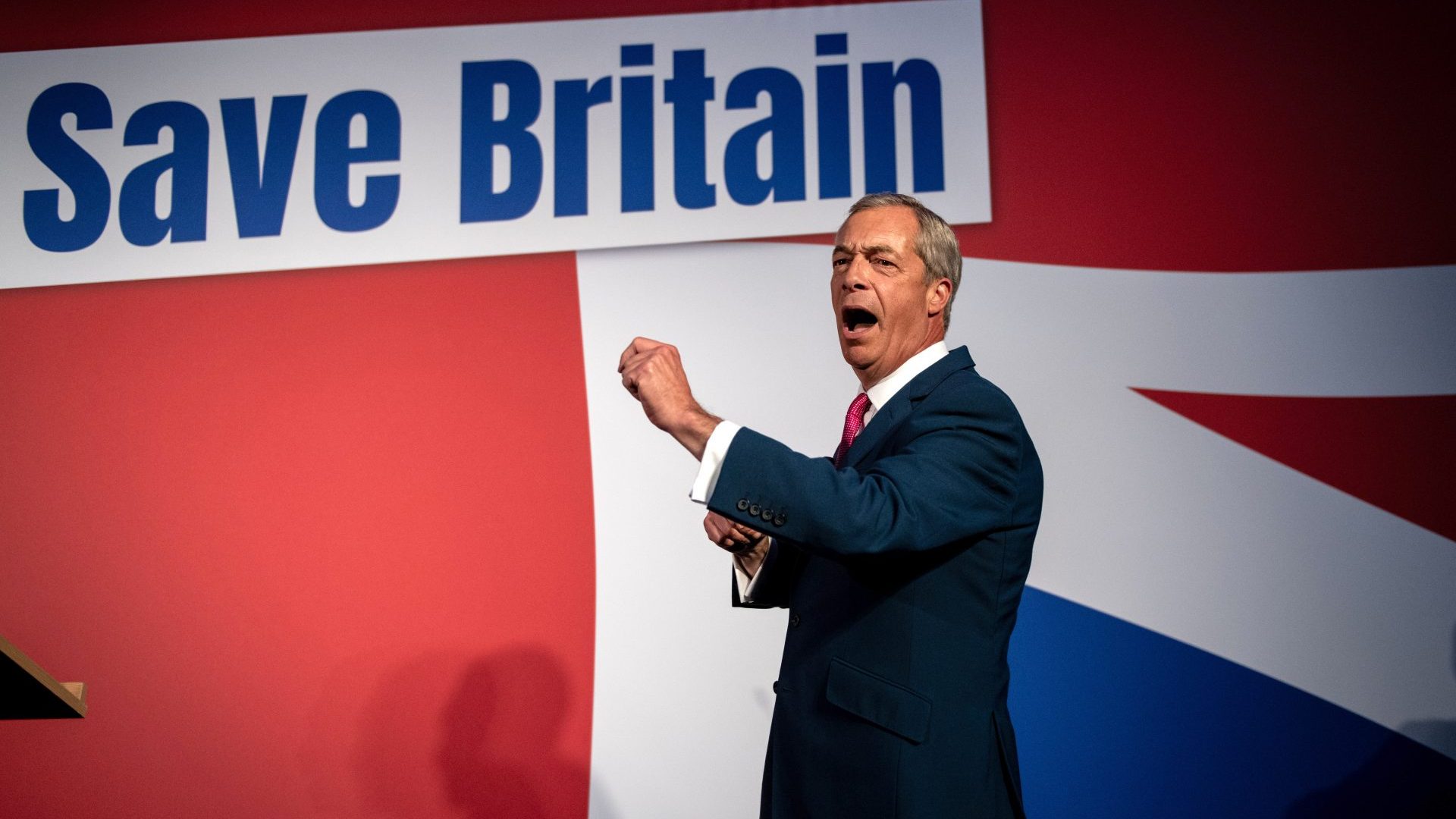With the National Trust’s AGM coming up next month, the Telegraph titles – for a long time fanatical in their opposition to the organisation, alongside GB News, the Daily Mail and a few swivel-eyed residents of Tufton Street – are predictably working themselves up into a state of apoplexy.
Over the weekend the Sunday Telegraph ran a simpering interview with one Lady Violet Manners, a former Dolce & Gabbana model, who said she was so sick of the “wokeness” and “politicisation” of the National Trust that she was putting herself up for election as a candidate to its advisory council.
She is one of a number of candidates endorsed by the Restore Trust, an activist organisation opposed to what it sees as the National Trust’s “modish, divisive ideologies”. It’s aligned to a collection of individuals that include Nigel Farage, Jacob Rees-Mogg and Susan Hill, the Tory candidate for mayor of London, who all want to see the National Trust under new management.
Zewditu Gebreyohanes, the director of the Restore Trust, was quoted in the Daily Mail last week saying hers was an organisation of well-intentioned volunteers who “didn’t even have an office.” All the same, she is also a “senior researcher” for the controversial investment firm Legatum Institute, also a major funder of GB News. The Legatum website acknowledges Gebreyohanes’s work for “the grassroots, member-led campaign” seeking change at the National Trust.
This year Restore hopes it will be third time lucky after their “anti-woke” candidates were rejected by members at the last two AGMs. There has been speculation, which Restore rejects, that its real motivations are to stoke up culture wars and/or see the National Trust relax the environmental protections it has on its 620,000 acres of land.
The Telegraph’s campaigning on Restore’s behalf has so far proved something of a mixed blessing. Their claim, for instance, that the National Trust had sacked 1,700 specialist curators as the Covid pandemic began in 2020 resulted in an embarrassing correction. Only eight had in fact been made redundant.
Like the RNLI, the National Trust appears to be weathering the present bombardment well. Membership is close to a record high – 5.6 million, according to the latest figures – and the public donated a record-breaking £117m last year for core conservation work and improving access to nature. A UCL Policy Lab poll, meanwhile, showed it came second only to the NHS when it comes to public trust.
Still, when I ask Celia Richardson, the National Trust’s director of communications, if she’s confident they will once again be able to repel boarders at this year’s AGM, she is cautious. “Our governance has always depended on independent people, free from political influence and business interests, acting collectively in the best interests of the Trust,” she replies. “When you’ve got such prominent politicians and media organisations against you, you’d be very unwise to be confident.”
Mandrake was the first to disclose that Rishi Sunak – eager to try to address his dire polling among the under-40s – wanted his media handlers to get him on to Good Morning Britain and The One Show during his party conference. He realised his first ambition – even if it resulted in an awkward grilling from Susanna Reid over HS2 – but I gather The One Show played harder to get.
They wanted Sunak on with his wife Akshata Murthy, to replicate the appearance of Theresa May with her husband Philip on the show when she was in office. I am told that while Sunak was happy to have his wife deliver a carefully worded speech at conference, he wasn’t so keen on the idea of her responding off her own bat to potentially embarrassing questions about her wealth and her former non-dom tax status.
Sunak’s convention-breaking decision to hold a live radio interview with Jeremy Vine at the same time shadow chancellor Rachel Reeves was making her speech at Labour’s Liverpool conference has gone down badly with the opposition. Parties are supposed to give their rivals a free ride when their conferences are in progress and the decision to reach out to Vine is being seen as both sneaky and desperate.
With a run of Tory prime ministers shamelessly stuffing the House of Lords to the gills with their own placemen and placewomen during their years in office – Boris Johnson alone created 87 peers – Sir Keir Starmer is acutely aware he will urgently need to redress the balance if he wins the next general election.
“It won’t look good if he creates too many Labour peers too quickly, so he’s been holding a few discreet conversations with Sir Ed Davey about who he might like to elevate to the upper house,” whispers my man in ermine.
“The Lib Dems can hardly complain about being under-represented in the Lords as things stand – 84 peers seems disproportionate against just 15 MPs – but Starmer knows even if Labour’s 172 peers join forces with the Lib Dems, that’s still not enough to defeat the 268 Tory members.”
One name under consideration for a peerage is Mark Pack, the party’s president and self-proclaimed “backroom boy,” but he is not a uniformly popular figure in the party and was closely associated with formulating strategy for their last election campaign under Jo Swinson which their own internal report described as “a high-speed car crash.”
Boris Johnson’s wife Carrie has chosen not to say a word in public about her boss Damian Aspinall, who is currently still under investigation by the Charity Commission over allegations of financial impropriety at his wildlife charity. The other day, however, she broke cover to declare on Instagram how “proud” she was to work for Aspinall and said the work he did was “incredible.”
This may mean either she has got wind of the Charity Commission finding the allegations against him have no merit or she is simply just very grateful to him for paying her a reputed six-figure sum for doing a not obviously exhausting job as his director of communications.
Keir Starmer blocked any debate on Brexit when Labour gathered in Liverpool in what his strategists are calling a policy of “constructive ambiguity.” The idea is not to alienate the tiny minority of red wall voters who still believe Brexit was a great idea, and, more importantly, to appeal to the Tory press.
The problem with the latter bit is that it is just not working. The Daily Mail last weekend said Starmer was “trying, Janus-like, to face both ways. He insists he is a man of integrity, but, by being secretive about his Brexit plans, he is treating voters with disdain.”




